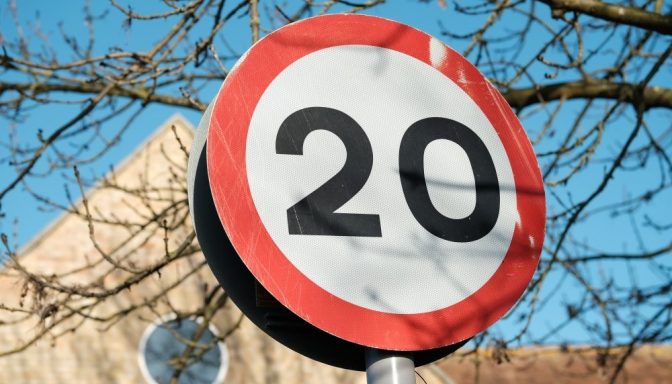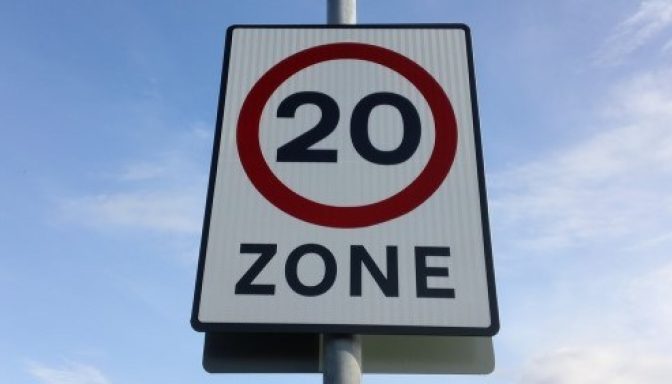I am delighted to have been asked by Brake to write a blog for their annual Road Safety Week. The 20’s Plenty (and Love 30 in km/h) movement has made huge progress in the last 12 months. The Welsh Government is developing its plan to set a national 20mph limit for urban and village roads by 2023. And recently the Scottish Government has pledged to make 20mph the norm in Scottish places by 2025. In May, the Spanish Government set a national urban 30km/h limit. And as part of the World Health Organization’s Global Road Safety Week in May of this year the sole focus was 20mph and 30km/h urban limits. All over the world, activists, communities, politicians, road safety professionals and NGOs like Brake, were calling for these life-enhancing and preserving limits. And the UN has also endorsed 20mph limits in its “Decade of Action for Road Safety” Global Plan where it makes the statement:
“In densely populated urban areas, there is strong evidence that even the best road and vehicle design features are unable to adequately guarantee the safety of all road users when speeds are above the known safe level of 30 km/h. For this reason, in urban areas where there is a typical, predictable mix of road users (cars, cyclists, motorcyclists, and pedestrians), a maximum speed limit of 30 km/h (20 mph) should be established, unless strong evidence exists to support higher limits.”
This really does bring out the fact that evidence supports the adoption of 20mph limits and sets a global standard of the speed limit where there is a mix of road users. Furthermore, the best thing about a default 20mph limit is that it is affordable, effective and can be rolled out without a huge call on engineering or technical resources.
And as we are all currently aware of the COP26 climate conference there is recent research[1] which shows that a 20mph limit can reduce climate-harming CO2 and people-harming NOx by more than 25% compared to 30mph. With transport representing 27% of the total carbon emissions in the UK then reducing it by a quarter is a substantive measure that can be easily taken to reduce climate warming. It isn’t a silver bullet, but it’s an action that can be taken by all governments at local and national level.
We are therefore calling on the UK government to end the “blah, blah” on 20mph limits whereby it asks for local authorities to set 20mph limits where the national 30mph limit is wrong, yet still treats 20mph as an isolated exception needing additional signage, justification and red tape. Already local and national authorities representing 28 million people in the UK have declared the national 30mph limit as no longer fit for purpose for most of their urban and village streets and have replaced it with 20mph limits. A 20mph default speed limit is one of the most cost-effective interventions to reduce casualties, reduce emissions, reduce noise, create better places to live. All our communities need a default 20mph and this year we have more reasons than ever to make it happen. Let’s make it the year that all UK governments accept that the national 30mph urban limit set in 1934 is no longer fit to meet the needs of 21st
century mobility. And if you would like more information on how we can help in your community then please contact me at rod.k@20splenty.org.
This blog is published for Road Safety Week 2021 in celebration of the road safety heroes who help us make safe and healthy journeys and support people after road crashes. Click here to find out more and sign up to take part.
Reference
[1] https://www.20splenty.org/new_research_on_emissions
Rod King MBE
Founder and Campaign Director, 20’s Plenty for Us



